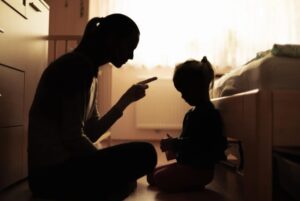Divorce is a tough topic for any family, and as a parent, I often worry about how it affects my kids. When parents separate, the emotional fallout can be significant, and it's crucial to understand the potential psychological impacts on children. Let's dive into this together, exploring what kids might experience and how we can help them navigate these changes.
Emotional Turmoil
First off, children can go through a rollercoaster of emotions during a divorce. They might feel sadness, anger, confusion, or even guilt. I remember when my friend went through a divorce; her kids were so upset, wondering if it was their fault. It's common for children to internalize the situation, believing they somehow caused the split. This guilt can weigh heavily on their little shoulders, leading to anxiety and depression.
Changes in Behavior
You might also notice changes in your child's behavior. Some kids may become more withdrawn, avoiding friends or activities they used to love. Others might act out, displaying anger or frustration at home or school. I’ve seen children throw tantrums or have difficulty concentrating on their studies after their parents' divorce. These reactions are natural responses to a significant life change, and understanding that can help us support them better.
Impact on Self-Esteem
Divorce can also impact a child's self-esteem. They might begin to question their worth, especially if they perceive one parent as unhappy or upset. This can lead to feelings of inadequacy and a lack of confidence. I once spoke with a child who felt they needed to "fix" things between their parents, which isn’t a burden they should carry. It’s vital to reassure kids that they are loved and valued, no matter the circumstances.
Changes in Relationships
Divorce can change a child’s relationships with their parents, siblings, and even friends. Sometimes, they may feel torn between two homes or parents, leading to a sense of loyalty conflict. For instance, if one parent is upset with the other, kids might feel like they have to choose sides. This can create additional stress and confusion. Encouraging open communication can help alleviate some of these feelings, allowing them to express their concerns without fear of judgment.
Long-Term Effects
While many children bounce back from divorce, research shows that some may experience long-term mental health challenges. Issues such as anxiety, depression, and relationship problems can persist into adulthood. I’ve read studies suggesting that children of divorced parents are at a higher risk for these issues, so it's essential to be proactive in supporting them through this transition.
Tips for Supporting Kids
So, what can we do as parents to help our kids cope with the changes that come with divorce? Here are a few tips I’ve found helpful:
- Open Communication: Encourage your child to talk about their feelings. Make sure they know it’s okay to express sadness, anger, or confusion. Sometimes, just listening can make a big difference.
- Reassurance: Remind your children that both parents love them and that the divorce isn’t their fault. I often find that affirming their worth can help boost their confidence during this tough time.
- Routine: Try to maintain routines and stability in their lives. Kids thrive on predictability, so keeping regular schedules for meals, homework, and play can provide comfort.
- Seek Professional Help: If you notice your child struggling significantly, consider speaking with a child psychologist. They can provide support and coping strategies tailored to your child's needs.
- Co-Parenting Cooperation: Work together with your ex-spouse to create a united front. Presenting a united approach to parenting can alleviate some of the confusion and stress for your kids.
Conclusion
Divorce is undoubtedly challenging for families, but by understanding its potential impact on our children's mental health, we can take steps to support them through this transition. The most important thing is to ensure our kids feel loved, valued, and heard. With our guidance and support, they can navigate this tough period and come out stronger on the other side.
References:
- Kelly, J. B., & Emery, R. E. (2003). Children’s Adjustment to Divorce: Theory, Research, and Interventions. Family Relations.
- Amato, P. R. (2001). The Consequences of Divorce for Adults and Children. Journal of Marriage and Family.













